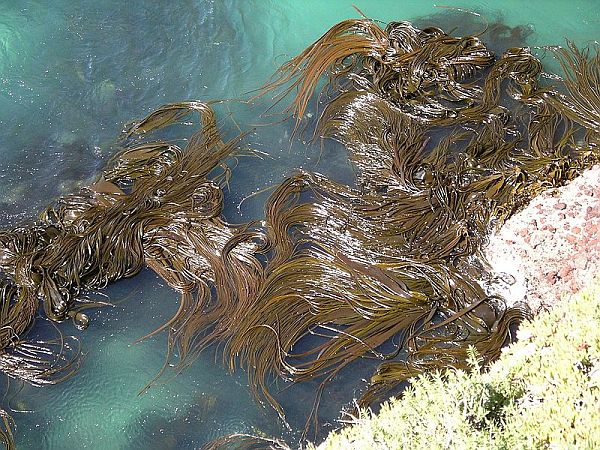 With rising levels of water bodies and water pollution, the marine life has been affected like none other. If global warming is to blame for rising sea levels, we are to blame for all that’s polluted and disturbed. But even as aquatic animals and plants species are being rapidly wiped off the planet, some of the ones, still alive and reproducing, are proving to be angels for the misguided mankind.
With rising levels of water bodies and water pollution, the marine life has been affected like none other. If global warming is to blame for rising sea levels, we are to blame for all that’s polluted and disturbed. But even as aquatic animals and plants species are being rapidly wiped off the planet, some of the ones, still alive and reproducing, are proving to be angels for the misguided mankind.
Seaweed, more often than not recognised as distractions and disturbance for small boats and fishermen, can prove to be a prospective future biofuel source, and more so if harvested during the summer season. The use of a certain species called Kelp (Laminaria digitata) can turn out to be an immediate and ultimate alternative for all land grown biofuels. But researches are still on as the suitability and sustainability of its chemical compositions varies on a seasonal basis.
For example, harvesting the kelp in the month of July would yield the best results as during that time, the carbohydrate levels are at the highest which would consequent to adequate sugar release for biofuel production. A lead researcher at Aberystwyth University, Dr Jessica Adams has said that researches in their labs have shown that storage carbohydrates and soluble glucose convert into ethanol, a form of fuel, during the fermentation process. So, kelps are mostly needed to be procured during summer season due to high carbohydrate levels.
To assess the seaweeds’ seasonal variability, researchers collected samples of kelp on a per month basis from the Welsh coast and ultimately the results when compared, showed that July was the peak month for harvesting kelp as other than high carbohydrate levels, metal content was at its lowest, which too inhibits yeast.
The different ways to convert kelp into biofuel includes the processes of fermentation, anaerobic digestion producing ethane and methane or by a method of heating the fuel without oxygen (pyrolysis) which produces bio-oil. But to all these aforementioned processes, the chemical composition of the seaweeds is of utter importance. While we all concentrate on terrestrial resources, an interesting statistic to be noted is that marine ecosystems are an untapped resource that account for 50% of global biomass.
Moreover, seaweeds themselves have the capacity of producing more biomass/m2 than faster growing terrestrial plants. Dr Adams has also stated that seaweed biofuel could be very important in future energy production as our earth’s terrestrial resources are depleting day by day. Their primary advantage over other forms is their quality of storage.
Via: ScienceDaily




